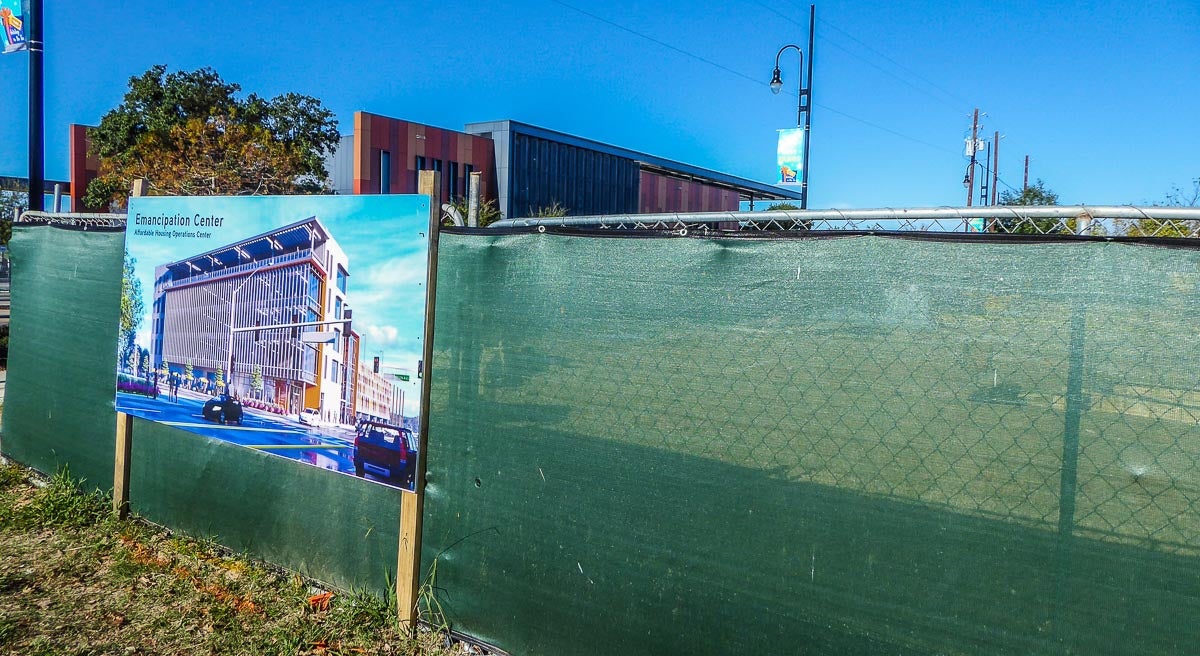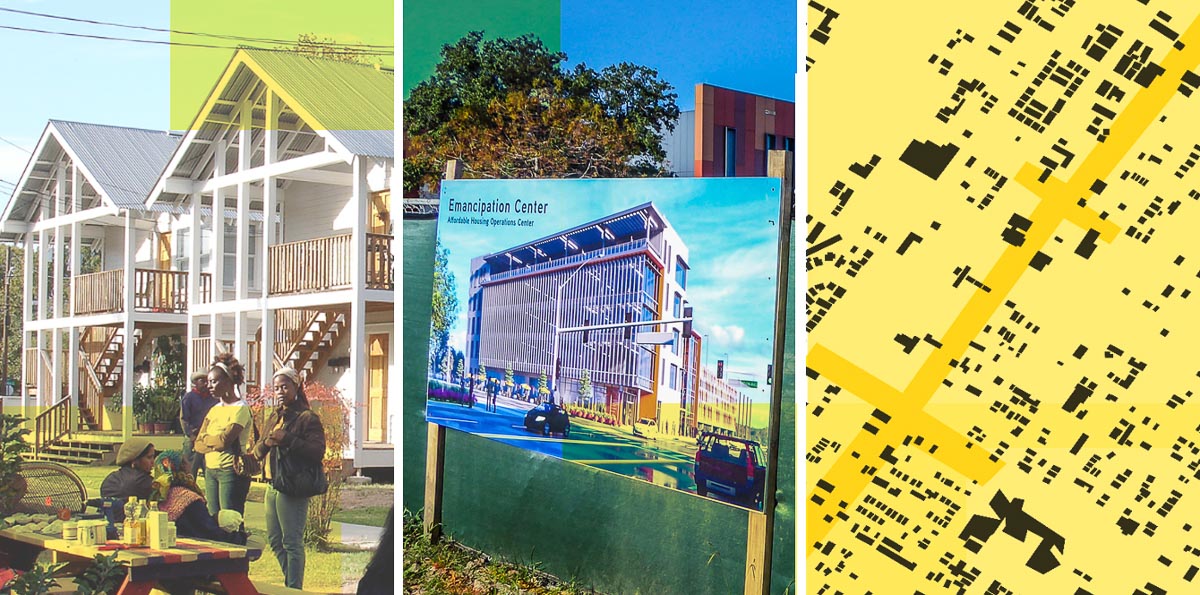This post was originally published in the Houston Chronicle.
The home builder, EPIC Homes, was building 10 homes in the heart of Houston's Third Ward through an affordable housing initiative. Ramirez qualified and became the first person in her family to own a home, a point of pride for her parents who immigrated from the Dominican Republic to the US.
As Pamela and her neighbors watched their homes being built she developed lasting friendships in the community. Now, three years later, she looks back with deep gratitude for the affordable housing program that allowed her to purchase a newly constructed home in a neighborhood that she loves.
Unfortunately, there are far too few examples of success stories like Ramirez’s. The historic northern Third Ward needs 1,200 new units of affordable housing and more units of moderately priced housing over the next 10 years just to meet existing demand within the neighborhood, according to the Historic Third Ward Strategic Implementation Framework.
This will require strategic neighborhood planning; sustained collaboration among public, private and nonprofit organizations; and reliable local, state and federal funding along with private support. Local community organizations must also continue to represent Third Ward’s values and needs as they partner with outside organizations to bring much-needed resources to the community.
One big step in the right direction is the development of the Third Ward’s Emancipation Center, a 58,000-square-foot facility expected to open next year. It will serve as an affordable housing “one-stop shop” where public, private and non-profit groups can work together to tackle the affordable housing challenge.
The center itself offers 20 affordable housing units as well as ground-floor retail, services and public art. It also epitomizes a collaborative approach to tackling big issues in the Third Ward.
The establishment of the Emancipation Center underscores a decades-long, visionary strategy led by the community and supported by our elected officials to mitigate the effects of unchecked gentrification in the Third Ward and other central city neighborhoods. It follows other work in the past quarter century by Project Row Houses, Greater Zion, Tenemos, Guiding Light and others to build three large multi-family housing projects with more than 400 units, 30 duplexes and almost 100 single-family houses.

The Emancipation Center is being built at the corner of Emancipation and Elgin in the Third Ward. The center, which is located across the street from Emancipation Park and Community Center, will feature 20 affordable housing units, ground-floor retail space and public art. Photo by Andy Olin
More recently, the Montrose Center broke ground on a 112-unit apartment complex and health facility on former Midtown land. PRH-Preservation is completing the restoration of 21 historic row houses as affordable rental housing, and Change Happens CDC is developing 74 units in partnership with NHP. Row House CDC is in pre-development for another dozen affordable rental units while other efforts are underway with other affordable-housing groups to develop hundreds more affordable units in the next few years.
All this activity convinces us that Houston’s Third Ward can be an inspiring national model for how community-driven, government-supported efforts can meet affordable-housing challenges while preserving historic communities in our central cities.
The Third Ward Redevelopment Council Plan laid the groundwork in 1995. The Midtown Redevelopment Authority then used its legislative mandate to facilitate affordable housing by acquiring 100 acres of land in the Greater Third Ward and adopting the Midtown Affordable Housing Plan prepared by the Center for Civic and Public Policy Improvement in 2017. More recently, a coalition of community stakeholders formed in 2015 developed additional affordable housing strategies for Third Ward, which formed the basis for the Historic Third Ward Strategic Implementation Framework. Mayor Turner’s Complete Communities initiative is placing these affordable housing efforts within the context of the city’s broader strategic planning.
We are witnessing a renaissance of impactful affordable housing that heightens momentum in Third Ward, but, on a citywide scale, there is more to be done.
“The need for affordable housing in Houston and Harris County is at a crisis point.” So says the Greater Houston Flood Mitigation Consortium, which in March released a report investigating the interplay of affordable multi-family housing issues and flood risk.
The report, prepared by leading researchers from institutions across Texas, finds 1 of every 11 households, more than 140,000 renter families, earned less than $20,000 a year in 2017.
The availability of affordable housing for Greater Houston’s low-income renters is limited and also threatened by a widening gap between demand and supply of affordable housing, a loss of units through demolition and a shamefully low public subsidy rate compared to similar metropolitan areas. A reliance on the private market for affordable housing and the alarming fact that 26 percent of Harris County’s multi-family units lie within a flood plain are also alarming.
In a post-Harvey Houston, there has never been a more urgent need for government, civic, public, and private entities to work in concert to preserve and establish adequate and safe housing supplies. Fortunately, in places like the Third Ward, myriad groups have already assumed the mission.
The progress we have made thus far has been possible because of the foresight and leadership of many committed Houstonians over many decades. It is our turn to bring to bear all the resources we can muster to set the city up for long-term health and prosperity.
Coleman is Texas state representative for District 147. Kinder is president and CEO of Kinder Foundation, which is one of the sponsors of the Historic Third Ward Strategic Implementation Framework.

